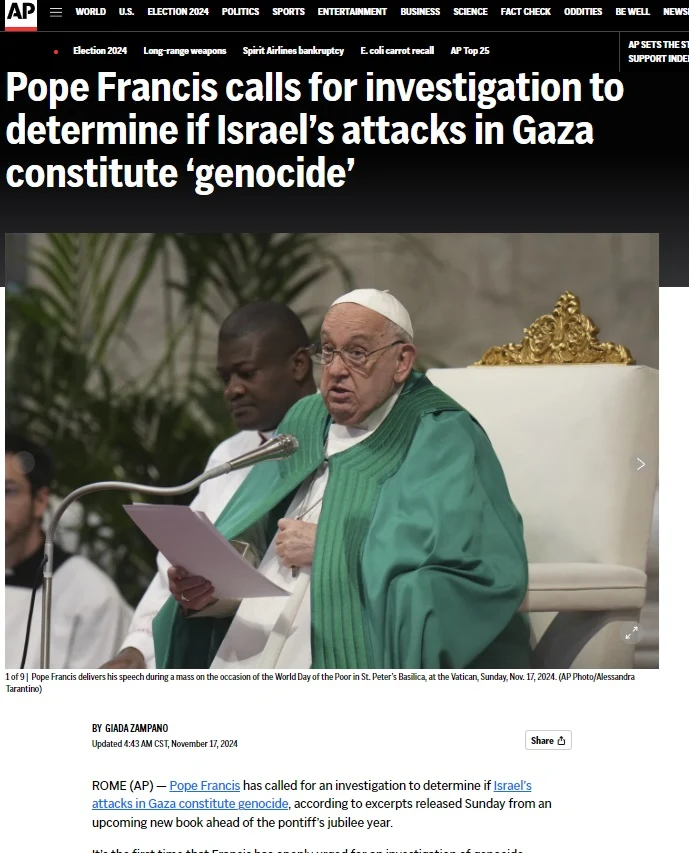From atrocities to genocide: the ethical, political and legal cost of silence
The evidence for atrocities inflicted on the Palestinian people that amount to genocide is mounting.
About two months after the start of the war in Ukraine, US president, Joe Biden, accused Russia of committing a genocide in that country. At that moment in time, UN reported that the war in Ukraine killed a total of 1,179 killed--236 men, 172 women, 15 girls, and 34 boys, as well as 55 children and 667 adults whose sex is yet unknown. (Commissioner for Human Rights (OHCHR)).
During the same number of days after Israel launched its war on Gaza, a total of 12,000 civilians were killed with nearly 9,000 of them being women and children. A year later, with the entire Palestinian population in Gaza forced to move in a war zone, and more than 43,922 Gazans dead and another 103,898 injured and 85% of the residential structures destroyed or damaged, still, the US government refuses to recognize what UN experts, NGOs, and independent scholars have characterized as a genocide against the Palestinian people. In fact, the Biden administration has rejected any notion of atrocities committed by Israel despite abundant evidence. In the last few weeks alone, UN experts, human rights organization, and even the Pope have called for an independent investigation into the genocidal activities committed by Israel.It is of note that proving that some state committed an act of genocide is a high bar because it requires not only showing acts that are genocidal in character, but also intent to commit a genocide. That is the difference between acts that are of the nature of war crimes, crimes against humanity, and act of terror, and the crime of genocide. With this in mind, the US administration accusing Russia of a genocide and reluctance to do so in the case of Gaza is extremely inconsistent.
Intent must be established, and in the case of Ukraine, there is no record of Russian leaders stating their intent to commit any crime let alone the full or partial destruction of a social group, stating instead their goal to prevent Ukraine from joining a military alliance that would be a threat to Russia’s security and justified Russia’s military intervention as being needed to protect Ethnic Russians in the Donbas region.
In the case of Gaza, Israeli leaders and government officials, as well as influential figures in the media and legislature, went on the record to declare their intent to starve and kill Gazans, and resettle both Gaza and West Bank.The expressed intent, as well as the actions of the Israeli military have led UN experts, ICC officials, NGOs, and independent scholars to characterize the killing, siege, and destruction taking place in Gaza and West Bank as atrocities with the characteristics of a genocide, prompting the Pope to add his voice to this matter.
Pope Francis has called for an investigation to determine whether Israeli attacks in Gaza constitute genocide, according to excerpts from a new book to be published Sunday. It is the first time Francis has publicly called for an investigation into allegations of genocide by Israel in the Gaza Strip. Last September, the Pope said that "Israel's attacks in Gaza and Lebanon were immoral and disproportionate," noting that "its army" had exceeded the rules of war.
The Pope’s call comes during the same time the UN Special Committee to Investigate Israeli Practices Affecting the Human Rights of the Palestinian People and Other Arabs of the Occupied Territories released its report, which found, among other things, that Israel’s war conduct in Gaza “is consistent with the characteristics of genocide,” specifically accusing Israel of mass killings and using starvation as a weapon.
This must be a turning point for anyone with any level of interest in human rights, for looking the other way now, means their use of human rights as a political tool, not a norm that must be honored and defended under all circumstances.











































